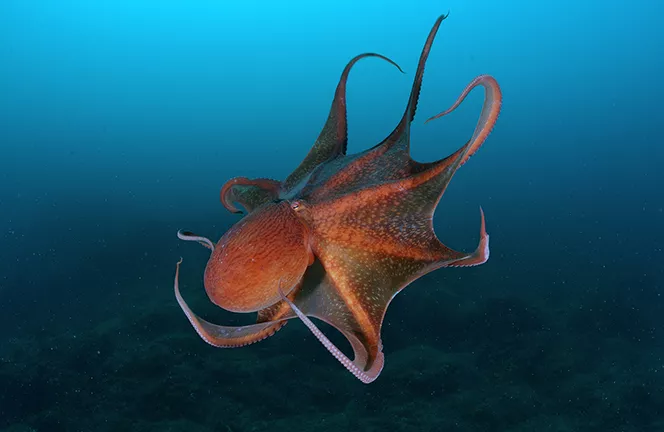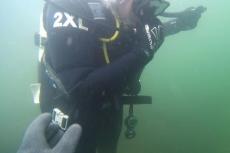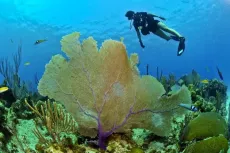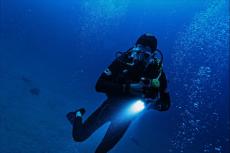Respect for other life forms
Progressing age does not come with many positives except perhaps that one gains some perspective.
I live in the present and feel like the same usual me day to day, so I do not frequently think about the past. But, on occasion, something reminds me of how things used to be. Much to my own astonishment, it has already been 35 years since I started diving. When I look at old photographs, I usually have the same two initial reactions.
Firstly, the hairstyles and fashions of the time (late 1980s) make me cringe and chuckle; and secondly, looking at the crude and clunky dive gear I was wearing in the beginning makes me feel thankful that we have got much better equipment nowadays.
I mean, just look at the horse-collar vests, the crude mechanical depth gauges, and the oversized Rambo-style dive knives we all awkwardly wore on the lower leg where it was quite hard to reach. Back then, an octopus regulator was a luxury but not a requirement, or even commonplace. We also used dive tables, as computers were a thing of the future.
Do I feel nostalgic? Nah. Well, perhaps a little bit, as I think about the long, carefree and playful summers of my youth and some great concerts I attended, but surely not about the dive equipment or training standards. It is much better and safer now.
What does, however, spring to mind when I mentally scroll back over the decades, is the vastly improved appreciation of sentience and intelligence in other species we have today, including many of those we encounter on our dives.
Back in those early days, fish were just fish—animals with some basic instincts and reactions but without much thought or sentiments. Shrimps, and the like, could surely not have these characteristics.
How very mistaken we were.
We have over the years published a good number of articles and news posts about sentience, social behaviour, and intelligence in other species. It is a subject matter with profound philosophical qualities, which I find deeply fascinating, as it keeps changing the perspective of what we are, in relation to other animals, and how we interact with our fellow beings.
It has therefore also greatly changed my experience and appreciation of diving, because I now have a much clearer sense that other species also think and feel to some degree, even small critters, and I can observe that we interact and even communicate.
Moreover, we now know that we should never stress or harm them. Instead, we should approach these beings with some respect, observe and seek to understand them.
They are all just trying to feed themselves, procreate and perhaps raise, protect and teach their young—just like us.
If anything, that would be the lesson I would pass on to the next generation of divers.




























